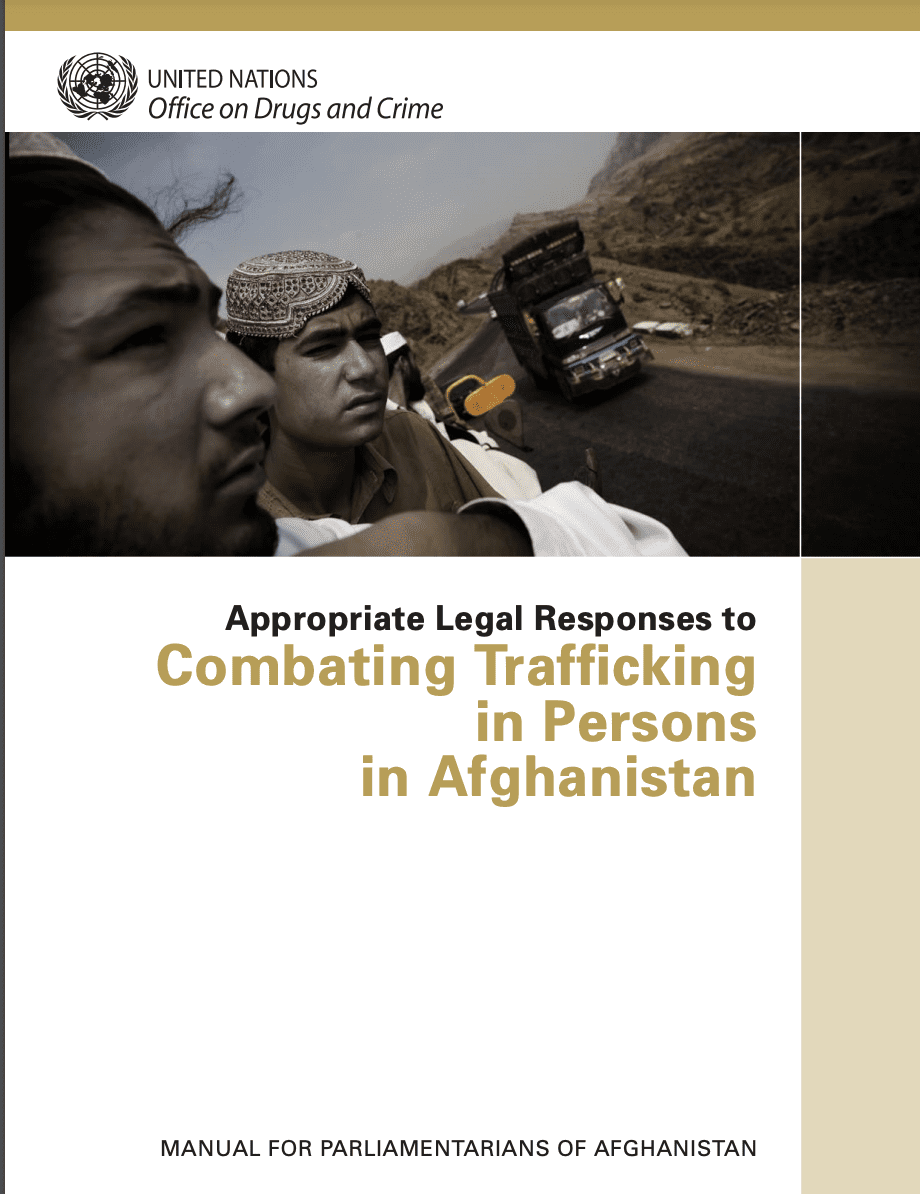
Appropriate Legal Responses to Combating Trafficking in Persons in Afghanistan
Foreward
Trafficking in persons is a global phenomenon of a multi-disciplinary nature. In one way or another, it affects nearly all countries of the world. Trafficking is committed primarily for purposes of forced labour and sexual exploitation, the majority of victims being women and children. It is dynamic, adaptable, and opportunistic and, like many other forms of criminal activity, it takes advantage of conflicts, humanitarian disasters and the vulnerability of people in situations of crises. Thus, tackling trafficking poses great challenges to national criminal justice systems, law enforcement, the general public and nongovernmental organizations. However, they all have a role to play in preventing trafficking in persons, prosecuting those who commit the offence and protecting the rights of the victims of human trafficking.
Trafficking in persons has become a major concern for Afghanistan. This is reflected by President Hamid Karzai’s presidential decree of 2006 against trafficking in persons. In 2007, the Ministry of Justice included legislation to prevent and combat trafficking in persons in the Council of Minister’s Annual Legislative Work Plan. Thereafter, the Ministry of Justice in partnership with other ministries successfully drafted the anti-trafficking legislation, which will be sent to the National Assembly for their approval.
The National Assembly of Afghanistan and Afghan parliamentarians have made great progress to establish the rule of law in Afghanistan. The anti-trafficking legislation provides an opportunity for the National Assembly and Afghan Parliamentarians to demonstrate their ability and the crucial role they have to play in the anti-human trafficking movement. Approval of the legislation will signify significant progress towards combating trafficking in persons in Afghanistan.
The role of Afghan parliamentarians in combating trafficking is manifold, and includes ensuring ratification of the Protocol to Prevent, Suppress and Punish Trafficking in Persons, especially Women and Children and any other relevant international instruments. Parliamentarians, by drafting, amending and monitoring national legislation to combat trafficking in persons in accordance with international standards, can work to ensure that the crime of trafficking is precisely defined in national law. Parliamentarians’ work also includes enforcement of a comprehensive anti-trafficking legislation, raising awareness of trafficking in persons at the national and international level, guiding policy and overseeing its effective and successful implementation.
This manual provides comprehensive background information on the international and national legal framework governing the response to trafficking in persons. It draws on examples of good practices, including model laws, from around the world to present practical recommendations to parliamentarians in Afghanistan to serve as a guide in the process to more effectively combat trafficking in persons.
The manual is based on: the values and principles of Islamic Law; an analysis of the various provisions of the Protocol to Prevent, Suppress, and Punish Trafficking in Persons, especially Women and Children, supplementing the United Nations Convention against Transnational Organized Crime as interpreted by the legislative guide to the Protocol; the United Nations Office of the High Commissioner for Human Rights Recommended Principles and Guidelines on Human Rights and Human Trafficking; and the United Nations Office on Drugs and Crime, Inter-Parliamentary Union and UN.GIFT “The Appropriate Legal Responses to Combating Trafficking in Persons: A Handbook for Parliamentarians [draft].”1
Read more here.
